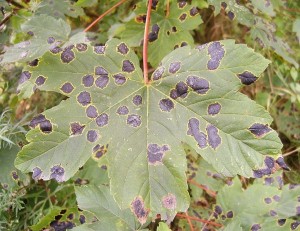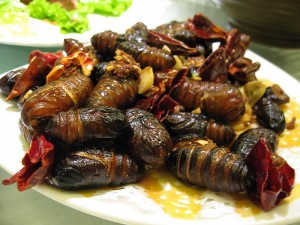Researchers at UBC’s Michael Smith labs have identified a crucial gene that regulates the immune response in plants. Yes you heard correctly, the plant immune system.
Because we live the majority of our lives in cities, where the only thing we see wrong with plants is the burnt lawns in August, we could be excused for not knowing that plants can ‘get the flu’. But it’s true, plants get sick much like we do, with similarities down to the molecular scale.
This is the expertise of Dr. Li’s lab; paving the way to mapping the immune system of plants. This is no easy task. Teasing out the relationships between the dozens of genes responsible for plant immunity a like trying to put together a jigsaw puzzle blindfolded, not knowing what the assembled picture will look like. Recently however, they have published a paper that puts a piece solidly into place.
They have identified the gene that regulates the immune response by adjusting how NLR’s (an important class of immune receptors) are regulated. The gene, called CPR1, is part of a class of proteins that is involved in ubiquitination, which is the way all multicellular organisms ‘tag’ the proteins that need to be disposed of.

This unfolding field of research is being spearheaded right here in UBC as well as in collaboration with teams from Beijing’s National Institute of Biological Sciences and Duke University. And although plant pathology is often overshadowed by its more charismatic, better-funded cousin, the study of the animal immune system, it’s by no means less important.
Audio clip: Adobe Flash Player (version 9 or above) is required to play this audio clip. Download the latest version here. You also need to have JavaScript enabled in your browser.
Music: Ergo Phizmiz – Papageno Drunk. Creative Commons.
So if we can get the plant to do the heavy lifting by making a protein that could adjust how hard the plant fights against a certain pathogen, we may eventually move away from using chemical control techniques that are often toxic to farmers and consumers alike.
Although it’s nice to imagine a bright tomorrow where all food crops will be perfectly immune against any blight that comes their way, we have to face the facts. In order for us to have our “Jetsons” dream come true, basic research must come first.
After all, as Dr. Li notes, even Albert Einstein didn’t realize that research on the atom could someday lead to atomic weaponry. So we have no sound way to tell what fruits this research will bear in the future. Let’s hope that the next generation of scientists will only weaponize our crops metaphorically speaking.





